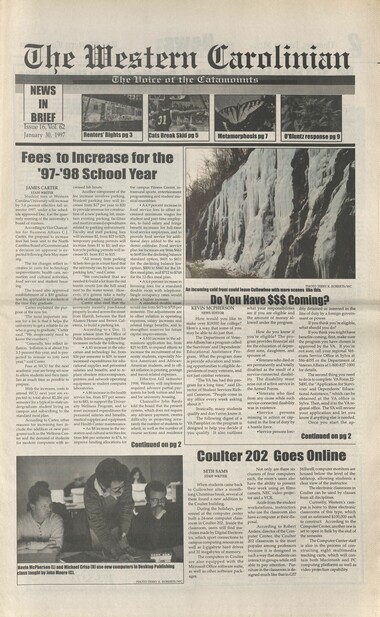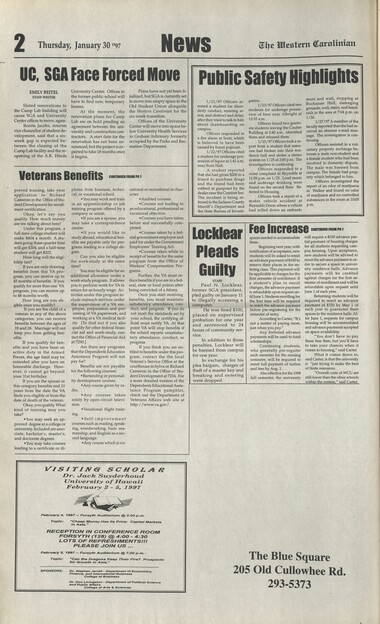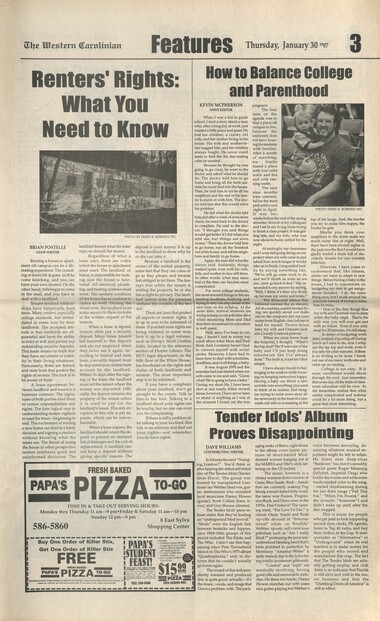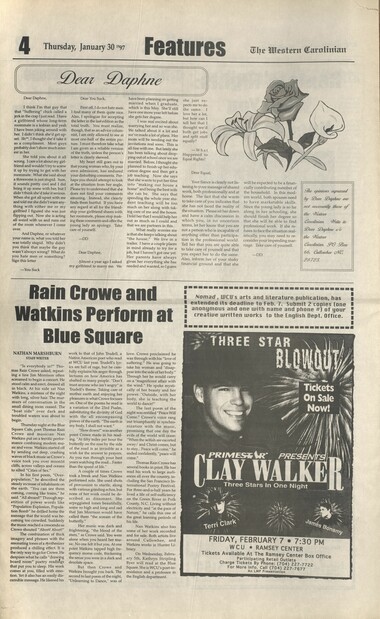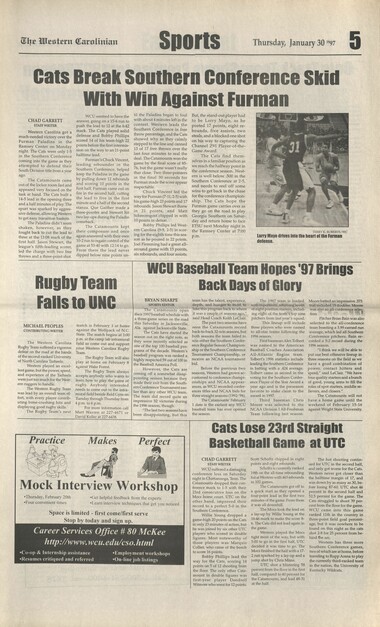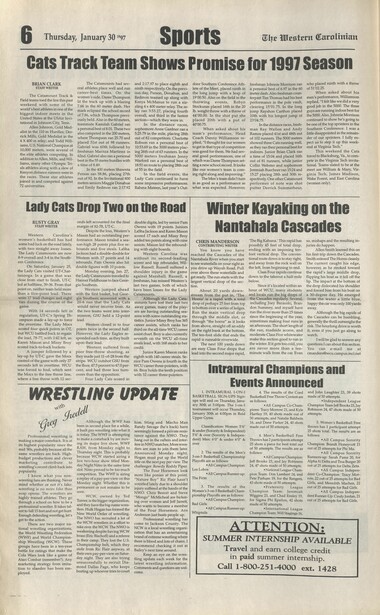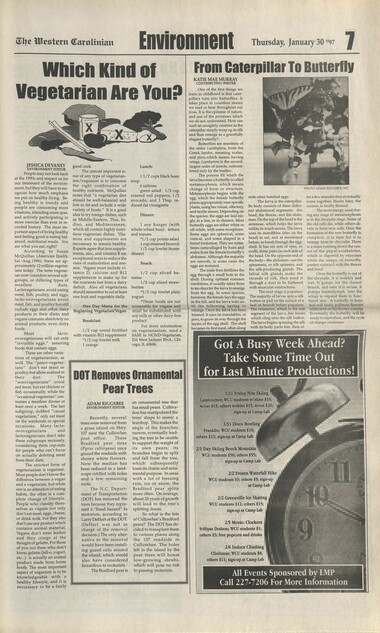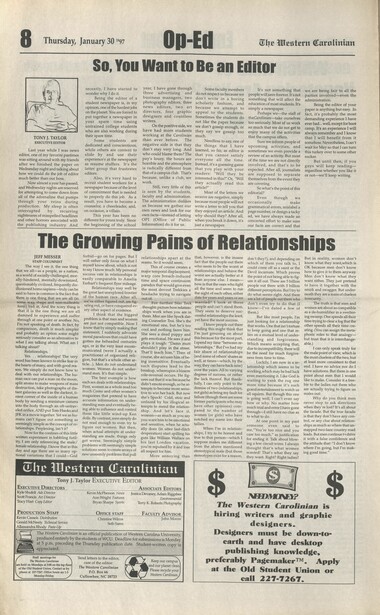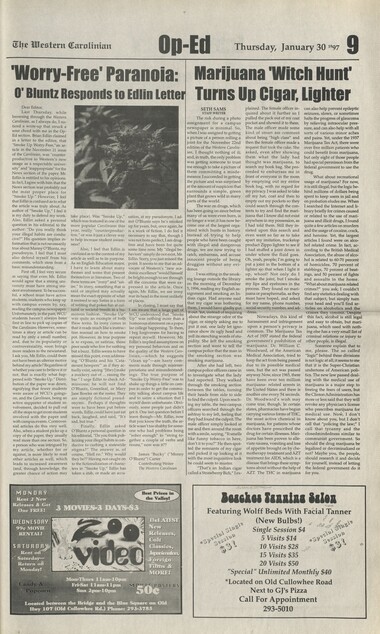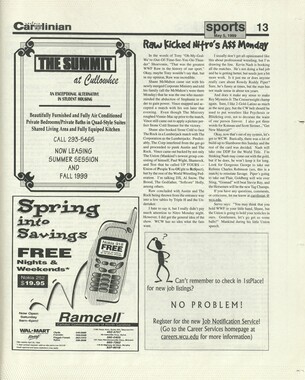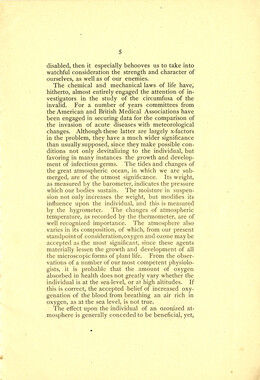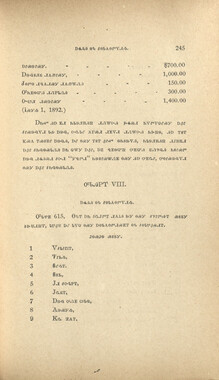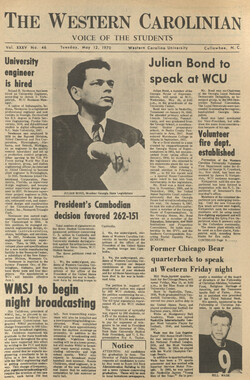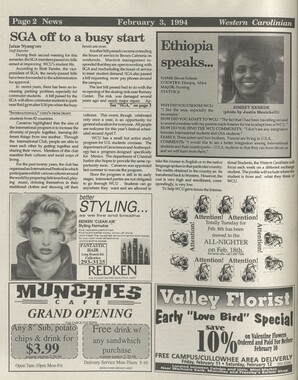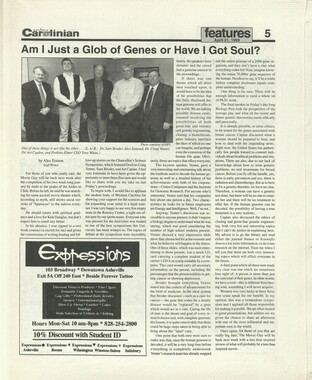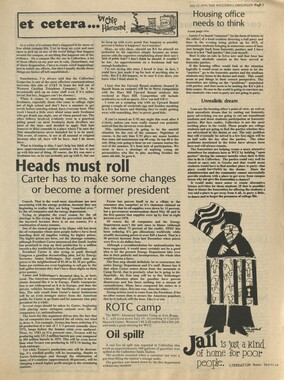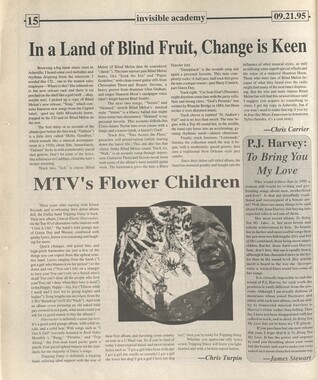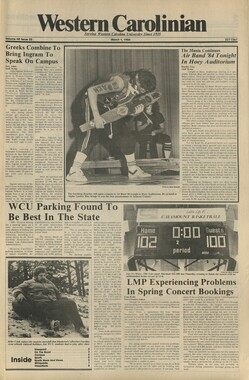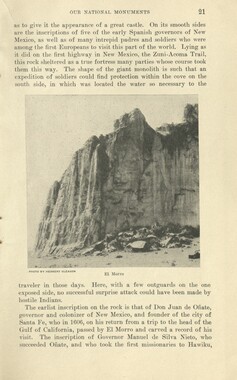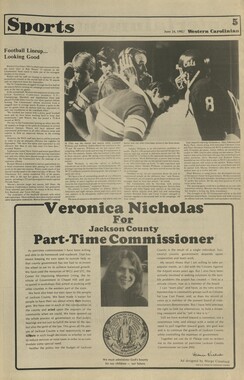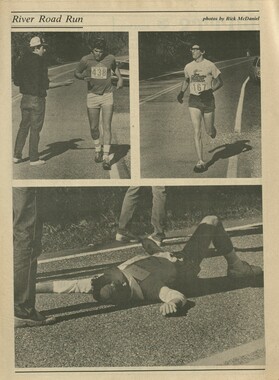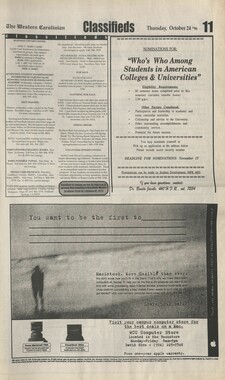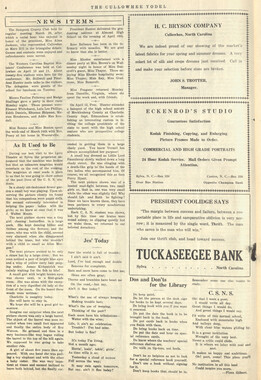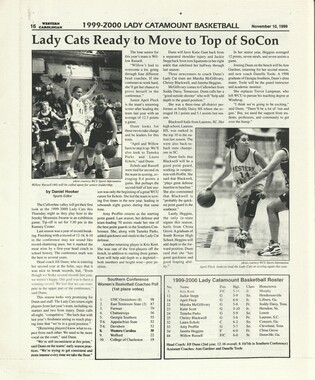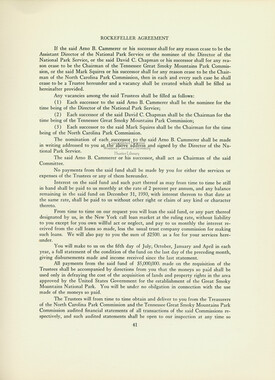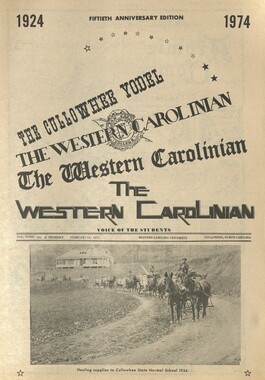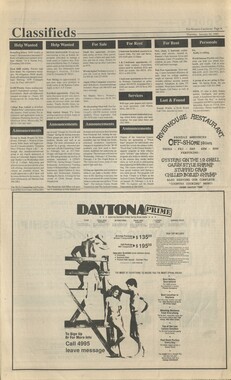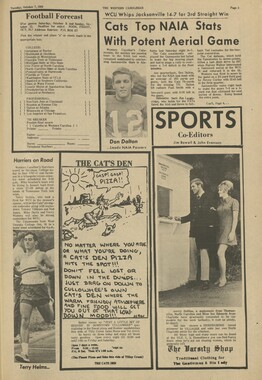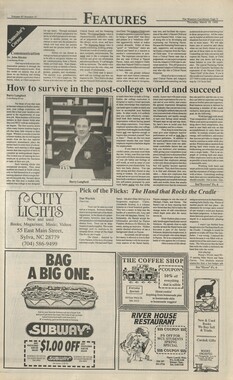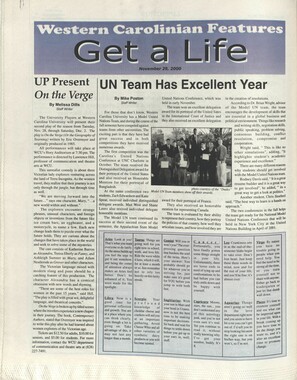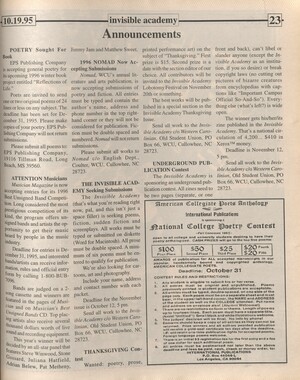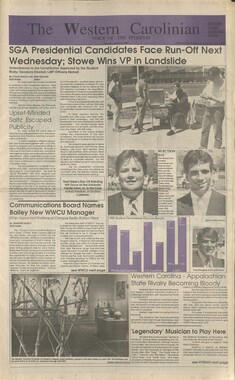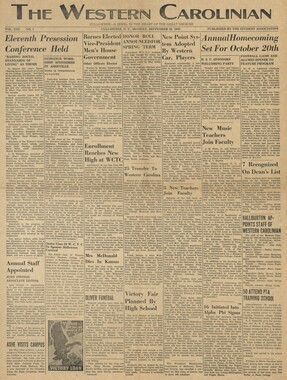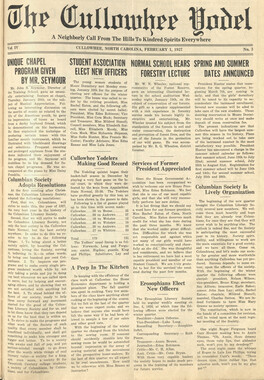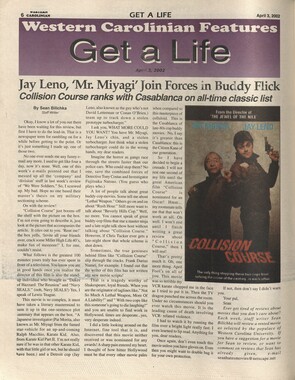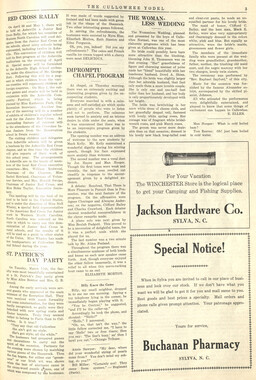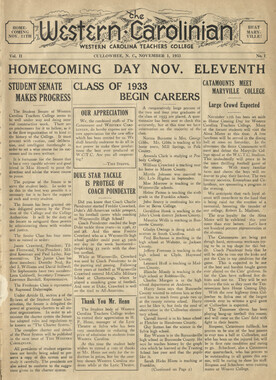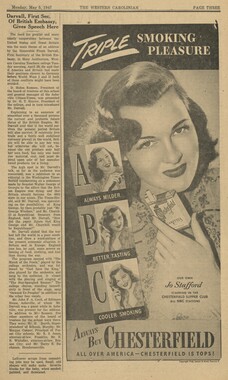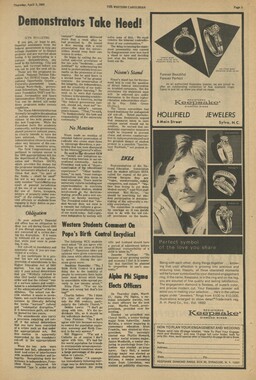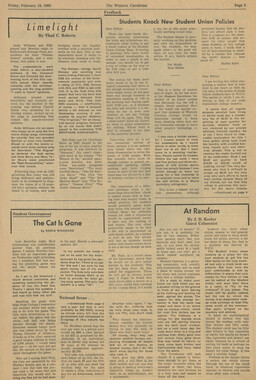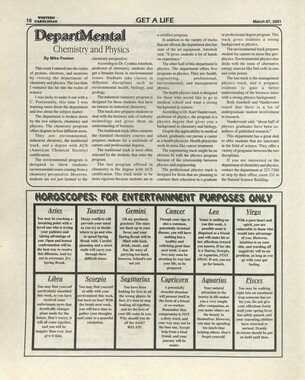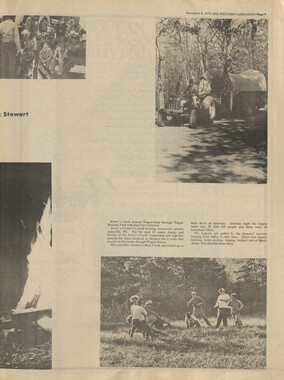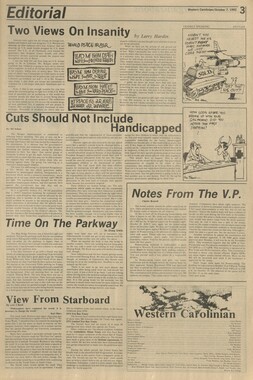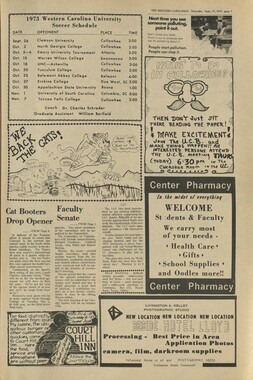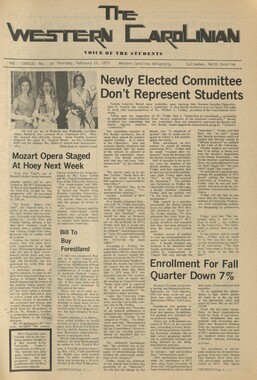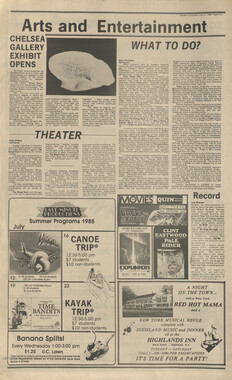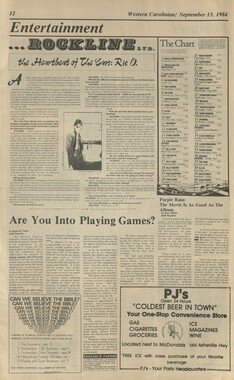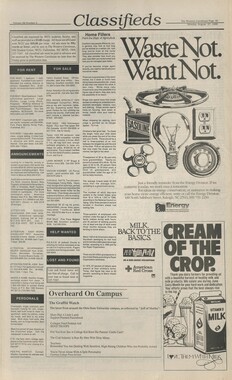Western Carolina University (20)
View all
- Canton Champion Fibre Company (2308)
- Cherokee Traditions (292)
- Civil War in Southern Appalachia (165)
- Craft Revival (1942)
- Great Smoky Mountains - A Park for America (2766)
- Highlights from Western Carolina University (430)
- Horace Kephart (941)
- Journeys Through Jackson (154)
- LGBTQIA+ Archive of Jackson County (85)
- Oral Histories of Western North Carolina (314)
- Picturing Appalachia (6772)
- Stories of Mountain Folk (413)
- Travel Western North Carolina (160)
- Western Carolina University Fine Art Museum Vitreograph Collection (129)
- Western Carolina University Herbarium (92)
- Western Carolina University: Making Memories (708)
- Western Carolina University Publications (2283)
- Western Carolina University Restricted Electronic Theses and Dissertations (146)
- Western North Carolina Regional Maps (71)
- World War II in Southern Appalachia (131)
University of North Carolina Asheville (6)
View all
- Allanstand Cottage Industries (62)
- Appalachian National Park Association (53)
- Bennett, Kelly, 1890-1974 (1388)
- Berry, Walter (76)
- Brasstown Carvers (40)
- Carver, George Washington, 1864?-1943 (26)
- Cathey, Joseph, 1803-1874 (1)
- Champion Fibre Company (233)
- Champion Paper and Fibre Company (297)
- Cherokee Indian Fair Association (16)
- Cherokee Language Program (22)
- Crowe, Amanda (40)
- Edmonston, Thomas Benton, 1842-1907 (7)
- Ensley, A. L. (Abraham Lincoln), 1865-1948 (275)
- Fromer, Irving Rhodes, 1913-1994 (70)
- George Butz (BFS 1907) (46)
- Goodrich, Frances Louisa (120)
- Grant, George Alexander, 1891-1964 (96)
- Heard, Marian Gladys (60)
- Kephart, Calvin, 1883-1969 (15)
- Kephart, Horace, 1862-1931 (313)
- Kephart, Laura, 1862-1954 (39)
- Laney, Gideon Thomas, 1889-1976 (439)
- Masa, George, 1881-1933 (61)
- McElhinney, William Julian, 1896-1953 (44)
- Niggli, Josephina, 1910-1983 (10)
- North Carolina Park Commission (105)
- Osborne, Kezia Stradley (9)
- Owens, Samuel Robert, 1918-1995 (11)
- Penland Weavers and Potters (36)
- Roberts, Vivienne (15)
- Roth, Albert, 1890-1974 (142)
- Schenck, Carl Alwin, 1868-1955 (1)
- Sherrill's Photography Studio (2565)
- Southern Highland Handicraft Guild (127)
- Southern Highlanders, Inc. (71)
- Stalcup, Jesse Bryson (46)
- Stearns, I. K. (213)
- Thompson, James Edward, 1880-1976 (226)
- United States. Indian Arts and Crafts Board (130)
- USFS (683)
- Vance, Zebulon Baird, 1830-1894 (1)
- Weaver, Zebulon, 1872-1948 (58)
- Western Carolina College (230)
- Western Carolina Teachers College (282)
- Western Carolina University (1794)
- Western Carolina University. Mountain Heritage Center (18)
- Whitman, Walt, 1819-1892 (10)
- Wilburn, Hiram Coleman, 1880-1967 (73)
- Williams, Isadora (3)
- Cain, Doreyl Ammons (0)
- Crittenden, Lorraine (0)
- Rhodes, Judy (0)
- Smith, Edward Clark (0)
- Appalachian Region, Southern (2569)
- Asheville (N.C.) (1923)
- Avery County (N.C.) (26)
- Blount County (Tenn.) (161)
- Buncombe County (N.C.) (1672)
- Cherokee County (N.C.) (283)
- Clay County (N.C.) (555)
- Graham County (N.C.) (233)
- Great Smoky Mountains National Park (N.C. and Tenn.) (519)
- Haywood County (N.C.) (3524)
- Henderson County (N.C.) (70)
- Jackson County (N.C.) (4694)
- Knox County (Tenn.) (25)
- Knoxville (Tenn.) (12)
- Lake Santeetlah (N.C.) (10)
- Macon County (N.C.) (420)
- Madison County (N.C.) (212)
- McDowell County (N.C.) (39)
- Mitchell County (N.C.) (132)
- Polk County (N.C.) (35)
- Qualla Boundary (981)
- Rutherford County (N.C.) (76)
- Swain County (N.C.) (2115)
- Transylvania County (N.C.) (270)
- Watauga County (N.C.) (12)
- Waynesville (N.C.) (84)
- Yancey County (N.C.) (72)
- Aerial Photographs (3)
- Aerial Views (60)
- Albums (books) (4)
- Articles (1)
- Artifacts (object Genre) (228)
- Bibliographies (1)
- Biography (general Genre) (2)
- Cards (information Artifacts) (38)
- Clippings (information Artifacts) (191)
- Crafts (art Genres) (622)
- Depictions (visual Works) (21)
- Design Drawings (1)
- Drawings (visual Works) (184)
- Envelopes (73)
- Facsimiles (reproductions) (1)
- Fiction (general Genre) (4)
- Financial Records (12)
- Fliers (printed Matter) (67)
- Glass Plate Negatives (381)
- Guidebooks (2)
- Internegatives (10)
- Interviews (815)
- Land Surveys (102)
- Letters (correspondence) (1013)
- Manuscripts (documents) (618)
- Maps (documents) (177)
- Memorandums (25)
- Minutes (administrative Records) (59)
- Negatives (photographs) (5835)
- Newsletters (1285)
- Newspapers (2)
- Occupation Currency (1)
- Paintings (visual Works) (1)
- Pen And Ink Drawings (1)
- Periodicals (193)
- Personal Narratives (10)
- Photographs (12976)
- Plans (maps) (1)
- Poetry (6)
- Portraits (4533)
- Postcards (329)
- Programs (documents) (151)
- Publications (documents) (2236)
- Questionnaires (65)
- Scrapbooks (282)
- Sheet Music (2)
- Slides (photographs) (402)
- Songs (musical Compositions) (2)
- Sound Recordings (796)
- Specimens (92)
- Speeches (documents) (15)
- Tintypes (photographs) (8)
- Transcripts (322)
- Video Recordings (physical Artifacts) (23)
- Vitreographs (129)
- Text Messages (0)
- A.L. Ensley Collection (275)
- Appalachian Industrial School Records (7)
- Appalachian National Park Association Records (336)
- Axley-Meroney Collection (2)
- Bayard Wootten Photograph Collection (20)
- Bethel Rural Community Organization Collection (7)
- Blumer Collection (5)
- C.W. Slagle Collection (20)
- Canton Area Historical Museum (2110)
- Carlos C. Campbell Collection (282)
- Cataloochee History Project (64)
- Cherokee Studies Collection (4)
- Daisy Dame Photograph Album (5)
- Daniel Boone VI Collection (1)
- Doris Ulmann Photograph Collection (112)
- Elizabeth H. Lasley Collection (1)
- Elizabeth Woolworth Szold Fleharty Collection (4)
- Frank Fry Collection (95)
- George Masa Collection (173)
- Gideon Laney Collection (452)
- Hazel Scarborough Collection (2)
- Hiram C. Wilburn Papers (28)
- Historic Photographs Collection (236)
- Horace Kephart Collection (861)
- Humbard Collection (33)
- Hunter and Weaver Families Collection (1)
- I. D. Blumenthal Collection (4)
- Isadora Williams Collection (4)
- Jesse Bryson Stalcup Collection (47)
- Jim Thompson Collection (224)
- John B. Battle Collection (7)
- John C. Campbell Folk School Records (80)
- John Parris Collection (6)
- Judaculla Rock project (2)
- Kelly Bennett Collection (1407)
- Love Family Papers (11)
- Major Wiley Parris Civil War Letters (3)
- Map Collection (12)
- McFee-Misemer Civil War Letters (34)
- Mountain Heritage Center Collection (4)
- Norburn - Robertson - Thomson Families Collection (44)
- Pauline Hood Collection (7)
- Pre-Guild Collection (2)
- Qualla Arts and Crafts Mutual Collection (12)
- R.A. Romanes Collection (681)
- Rosser H. Taylor Collection (1)
- Samuel Robert Owens Collection (94)
- Sara Madison Collection (144)
- Sherrill Studio Photo Collection (2558)
- Smoky Mountains Hiking Club Collection (616)
- Stories of Mountain Folk - Radio Programs (374)
- The Reporter, Western Carolina University (510)
- Venoy and Elizabeth Reed Collection (16)
- WCU Gender and Sexuality Oral History Project (32)
- WCU Mountain Heritage Center Oral Histories (25)
- WCU Oral History Collection - Mountain People, Mountain Lives (71)
- WCU Students Newspapers Collection (1744)
- Western North Carolina Tomorrow Black Oral History Project (69)
- William Williams Stringfield Collection (2)
- Zebulon Weaver Collection (109)
- African Americans (390)
- Appalachian Trail (35)
- Artisans (521)
- Cherokee art (84)
- Cherokee artists -- North Carolina (10)
- Cherokee language (21)
- Cherokee pottery (101)
- Cherokee women (208)
- Church buildings (170)
- Civilian Conservation Corps (U.S.) (110)
- College student newspapers and periodicals (1830)
- Dams (107)
- Dance (1023)
- Education (222)
- Floods (61)
- Folk music (1015)
- Forced removal, 1813-1903 (2)
- Forest conservation (220)
- Forests and forestry (1184)
- Gender nonconformity (4)
- Great Smoky Mountains National Park (N.C. and Tenn.) (181)
- Hunting (38)
- Landscape photography (25)
- Logging (118)
- Maps (83)
- Mines and mineral resources (8)
- North Carolina -- Maps (18)
- Paper industry (38)
- Postcards (255)
- Pottery (135)
- Railroad trains (71)
- Rural electrification -- North Carolina, Western (3)
- School integration -- Southern States (2)
- Segregation -- North Carolina, Western (5)
- Slavery (5)
- Sports (452)
- Storytelling (244)
- Waterfalls -- Great Smoky Mountains (N.C. and Tenn.) (66)
- Weaving -- Appalachian Region, Southern (280)
- Wood-carving -- Appalachian Region, Southern (328)
- World War, 1939-1945 (173)
Western Carolinian Volume 62 Number 16
Item
Item’s are ‘child’ level descriptions to ‘parent’ objects, (e.g. one page of a whole book).
-
-
®lj£ Intern (jfaralintan Olhc TfTmre nf tlix Qlatammtntis Issue 16, Vol. 62 January 30, 1997 Fees to Increase for the '97-'98 School Year JAMES CARTER STAFF WRITER Student fees at Western Carolina University will increase by 3.6 percent effective fall semester 1997, under a fee schedule approved Dec. 4 at the quarterly meeting of the university's board of trustees. According to Vice Chancellor for Business Affairs C.J. Carter, the proposal to increase fees has been sent to the North Carolina Board of Governors and a decision on approval is expected following their May meeting- The fee changes reflect increases in costs for technology improvements, health care, recreation and cultural activities, food service and student housing. The board also approved establishment of a $30 graduation fee, applicable to students at the time they graduate. Carter explained the purpose of the new fee. "The most important reason for a fee is that it helps the university to get a reliable fix on who is going to graduate," Carter said. "We desperately need to know the numbers." "Generally, fees reflect inflation. Inflation is at about 3 to 3.3 percent this year, and is projected to remain so into next year," said Carter. Fees at WCU for the next academic year are being set now to allow students and their families as much time as possible to prepare. With the increases, costs to attend WCU next year are expected to total about $2,266 per semester for a typical in-state undergraduate student living on campus and subscribing to the standard meal plan. According to Carter, other reasons for increasing fees include the addition of new programs such as the Wellness Center and the demand of students for modern computers with in creased lab hours. Another component of the fee increase involves parking. Student parking fees will increase from $17 per year to $20 to provide revenue for construction of a new parking lot, maintain existing parking facilities and meet increased expenditures related to parking enforcement. Faculty and staff parking fees will increase $2, from $23 to $25; temporary parking permits will increase from $1 to $2; and motorcycle parking permits will increase $3, from $12 to $15. "All money from parking tickets fees go in a trust fund that the university can, by law, use for parking lots," said Carter. "We concluded that we needed to build a lot from the old tennis courts [on the hill area] next to the water tower. However, it's gonna take a hefty chunk of change," said Carter. Carter also said that the university recently purchased property located across the street from Harrill, between the Bird Alumni House and Brown Cafeteria, to build a parking lot. According to a Dec. 11 press release from the Office of Public Information, approved fee increases include the following: • A $3 increase in the education and technology fee, from $26 per semester to $29, to meet increased expenditures for educational supplies and personnel salaries and benefits, and to replace obsolete microcomputers, printers and network-operating equipment in student computer laboratories. • A $6 increase in the health service fee, from $77 per semester to $83, to support the University Wellness Program, and to meet increased expenditures for personnel salaries and benefits, medical supplies and equipment, and Health Center maintenance. • An $8 increase in the recreation and cultural activities fee, from $66 per semester to $74, to improve funding allocations for the campus Fitness Center, intramural sports, entertainment programming and student musical ensembles. • A 4.9 percent increase in food service fees to offset increased minimum wages for student and part-time employees, to fund salary and fringe benefit increases for full-time food service employees, and to provide food service for additional days added to the academic calendar. Food service plan fee increases are from $662 to $695 for the declining balance standard option, $601 to $631 for the declining balance low option, $800 to $840 for the 18- flex meal plan, and $712 to $748 for the 12-flex meal plan. • A 4.4 percent increase in housing fees for a standard double room with telephone. Single occupancy rates would show a higher increase. A standard double room would rise from $675 to $705 per semester. The adjustments are to offset inflation in operating expenses, salary increases and related fringe benefits, and to strengthen reserves for future capital improvements. • A $10 increase in the admissions application fee, from $25 to $35, to expand efforts to increase the recruitment of minority students, especially Native American and African- American students, and to offset inflation in printing, postage and travel-related expenses. Effective fall semester 1998, Western will implement required advance partial payments for both tuition and fees and for university housing. Chancellor John Bardo told the board that the present system, which does not require any advance payment, creates difficulty in projecting accurately the number of students to admit, as well as the number of course sections and residence Continued on pg 2 PHOTO TERRY K. ROBERTS/WC An incoming cold front could leave Cullowhee with more scenes like this. Do You Havo $$$ ComingP KEVIN MCPHERSON NEWS EDITOR How would you like to make over $18000 for college? Here's a way that some of you may be able to do just that. The Department of Veterans Affairs has a program called the Survivors' and Dependents' Educational Assistance Program. What the program does is provide education and training opportunities to eligible dependents of many veterans, and not just combat veterans. "The VA has had this program for a long time," said Director of Student Services Richard Cameron. "People come in my office every week asking about it." Ironically, many students qualify and don't even know it. The following digest of a VA Pamphlet on the program is designed to help you decide if you qualify. It also outlines what your responsibilities are if you are eligible and the amount of money allowed under the program. How do you know if you're eligible? The program provides financial aid for the education of dependent sons, daughters, and spouses of: •Veterans who died or are permanently and totally disabled as the result of a service-connected disability. The disability must arise out of active service in the Armed Forces. •Veterans who died from any cause while such service-connected disability was in existence. • Service persons missing in action or captured in the line of duty by a hostile force. •Service persons forc ibly detained or interned in the line of duty by a foreign government or power. If you think you're eligible, what should you do? If you think you might have benefits coming, first, make sure the program you have chosen is approved by the VA. If you're not sure, call your regional Veterans Service Office in Sylva at 586-4055 or the Department of Veteran Affairs at 1-800-827-1000 for details. The second thing you need to do is to complete VA Form 22- 5490, the "Application for Survivors' and Dependents' Educational Assistance," which can be obtained at the VA office in Sylva. Then, send it to the VA regional office. The VA will review your application and let you know if anything else is needed. Once you start the ap- Continued on pg 2 Coulter 202 Goes Online Kevin McPherson (U and Michael Crisp (Rl use new computers in Desktop Publishing class taught by John Moore (C). PHOTO TERRY K. ROBERTS/WC SETH SAMS STAFF WRITER When students came back to Cullowhee after a month- long Christmas break, several of them found a new addition to the Coulter building. During the holidays, personnel at the computer center built a 24-seat computer classroom in Coulter 202. Inside the classroom, users will find machines made by Digital Electronics, which sport connections to campus computing resources as well as 2-gigabyte hard drives and 32 megabytes of memory. The computers in Coulter are also equipped with the Microsoft Office software suite, as well as other software packages. Not only are there six clusters of four computers each, the room's users also have the ability to present their work using an Elmo camera, NEC video projector and a VCR. Aside from the student workstations, instructors who use the classroom also have a computer at their disposal. According to Robert Anders, director of the Computer Center, the Coulter 202 classroom is the most popular among professors because it is designed in such a way that students can interact in groups while still able to pay attention. Furniture in the classroom is designed much like that in G57 Stillwell; computer monitors are housed below the level of the tabletop, allowing students a clear view of the instructor. The electronic classroom in Coulter can be used by classes from all disciplines. Currently, Western's campus is home to three electronic classrooms of this type, which cost an estimated $100,000 each to construct. According to the Computer Center, another one is set to open in Belk by the end of the semester. The Computer Center staff is also in the process of constructing eight multimedia teaching carts, which will contain both Macintosh and PC computing platforms as well as video projection capability.
Object
Object’s are ‘parent’ level descriptions to ‘children’ items, (e.g. a book with pages).
-
The Western Carolinian is Western Carolina University's student-run newspaper. The paper was published as the Cullowhee Yodel from 1924 to 1931 before changing its name to The Western Carolinian in 1933.
-
